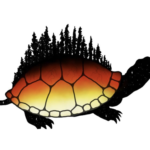Anishinabek Nation calls for respectful and flexible firearms regulations to support First Nation hunting rights
ANISHINABEK NATION TERRITORY (September 24, 2025) — With the fall season, the Anishinabek
Nation continues its commitment to upholding the rights and traditions of its First Nations,
particularly in the area of sustainable and culturally significant harvesting (hunting) practices.
“As the federal government continues to implement firearms regulations, we are advocating for
policies that recognize and accommodate First Nation practices,” states Anishinabek Nation Grand
Council Chief Linda Debassige. “We need to ensure that they are protected and respected,
including the statement by the Supreme Court of Canada in the R. v. Sparrow decision that
Aboriginal people are entitled to use their ‘preferred means of exercising their rights’. Further, the
same court in the Blueberry River First Nation decision acknowledged that for some First Nations,
industrial and commercial development in their territories is increasing the amount of effort and
investment required to exercise their rights. We are pleased to see that recent firearms
regulations have included some important exemptions that acknowledge First Nation rights under
Section 35 of the Constitution Act, 1982. Specifically, Indigenous hunters have alternative means
for safety certification, including Elders and others with sufficient knowledge of safety and the
law.”
However, the Anishinabek Nation urges federal and provincial regulators to:
• Continue to recognize and respect First Nation hunting rights and their preferred means of
exercising them in their use of all classes of firearms purchased prior to the change in
regulations.
• Understand that increased industrialization and commercialization of our territories means
that First Nations must become more efficient in exercising their rights, including utilizing
different models of firearms.
• Provide clear exemptions and allowances for First Nations protected Section 35 rights.
• Ensure licensing requirements are flexible for First Nations hunters, respecting their
sovereignty and traditional ways, and the impact on loss of culture, including the cultural
practice of harvesting.
“Our communities remain dedicated to responsible firearm use, and we seek partnerships with
government agencies to ensure our traditional practices are preserved and supported with
regulation that is respectful of First Nation Section 35 rights,” states Grand Council Chief
Debassige.
The Anishinabek Nation is a political advocate for 39 member First Nations across Ontario, representing
approximately 70,000 citizens. The Anishinabek Nation is the oldest political organization in Ontario and
can trace its roots back to the Confederacy of Three Fires, which existed long before European contact.


